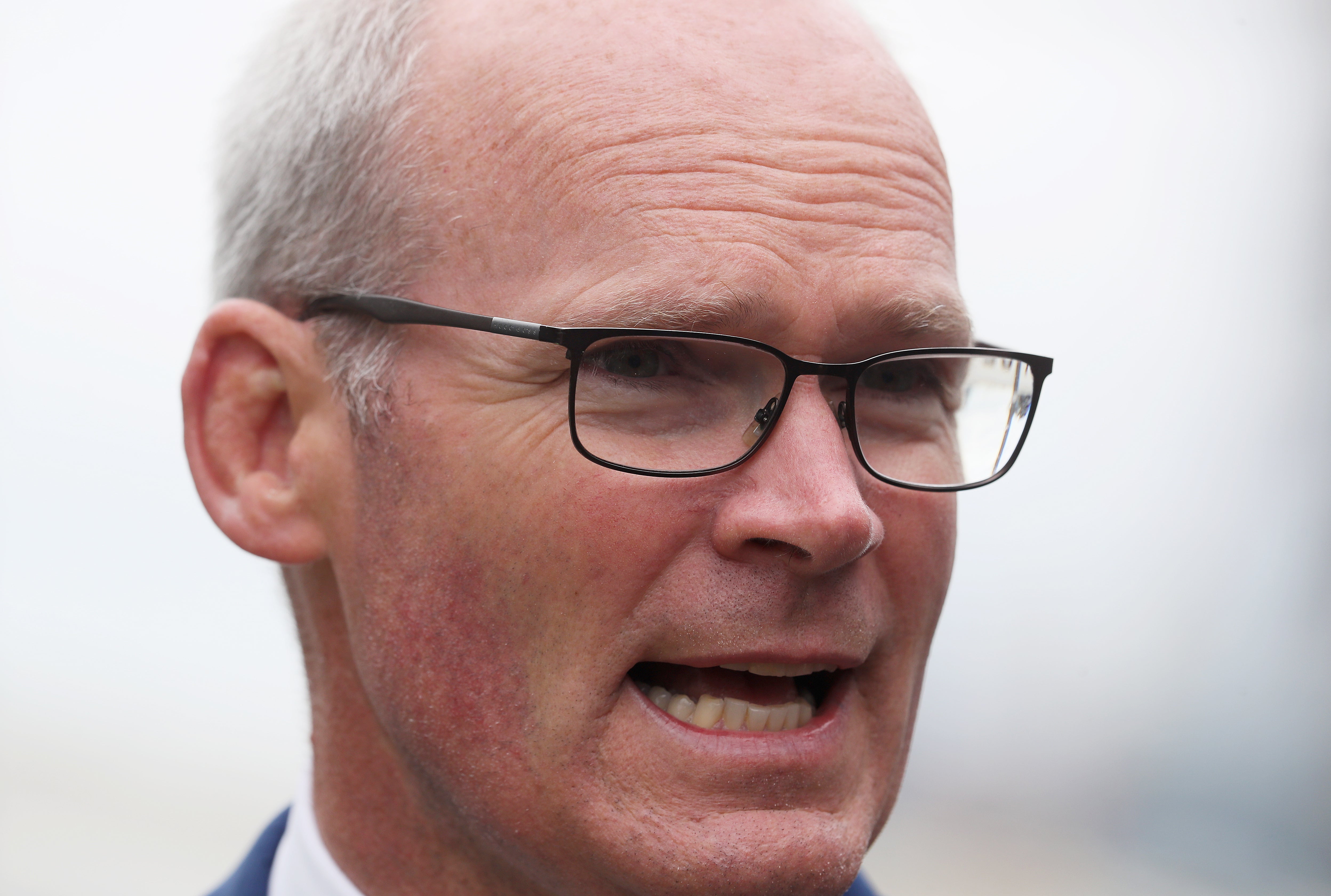Ireland rules out expelling Russian ambassador – Coveney
Foreign Affairs Minister Simon Coveney indicated that Ireland might move to expel some Russian diplomats, but ruled out expelling the ambassador.

Your support helps us to tell the story
From reproductive rights to climate change to Big Tech, The Independent is on the ground when the story is developing. Whether it's investigating the financials of Elon Musk's pro-Trump PAC or producing our latest documentary, 'The A Word', which shines a light on the American women fighting for reproductive rights, we know how important it is to parse out the facts from the messaging.
At such a critical moment in US history, we need reporters on the ground. Your donation allows us to keep sending journalists to speak to both sides of the story.
The Independent is trusted by Americans across the entire political spectrum. And unlike many other quality news outlets, we choose not to lock Americans out of our reporting and analysis with paywalls. We believe quality journalism should be available to everyone, paid for by those who can afford it.
Your support makes all the difference.Ireland may expel some Russian diplomats in the coming days, but will likely stop short of ejecting the ambassador, the Foreign Affairs Minister has said.
It comes after the EU announced on Sunday an unprecedented set of measures to support Ukrainians, confirming that it will close its airspace to Russian airlines, fund supplies of weapons to Ukraine and ban some pro-Kremlin media outlets in response to Russia’s invasion.
Ireland will “constructively abstain” from the planned delivery of arms to Ukraine.
Simon Coveney, speaking amid growing calls for the Russian ambassador to be expelled, said that he understood public and political anger directed at Russia and Yury Filatov as the country’s representative in Ireland.
He indicated that Ireland might move to expel some Russian diplomats, but ruled out expelling the ambassador.
“I can totally understand the anger and the sentiment behind that.
“My job as a foreign minister is to try to think ahead here. We are going to have Irish citizens, hundreds of them, living and working in Russia. We do have today.
“We have many Irish citizens still in Ukraine too.
I don't think it's wise for us to expel the Russian ambassador and have no Russian presence in Ireland
“I need to make sure that we have lines of communication open so that I can help those people and do my job. And even if you fundamentally disagree with somebody, as we do with Russia right now, and you’re trying to hold them to account, as we are trying at the moment, you still have to keep lines of communication open, in my view.
“Does that mean that we won’t be expelling some Russian diplomats or some operatives that are in Ireland who may not be diplomats in the next few days? No, it doesn’t. We may well do that.
“But I don’t think it’s wise for us to expel the Russian ambassador and have no Russian presence in Ireland to allow us to have a direct line of communication with Moscow for humanitarian reasons primarily, but also to ensure that we can let them know what the Irish view is very directly in terms of Russian actions.”
Mr Coveney said that no country in the EU has so far moved to expel their Russian ambassador.
“The expulsion of diplomats or Russian staff in embassies is quite a significant thing to do. It sends a very strong signal and Russia will respond in kind.
“I think it’s likely that something will happen in that space, but we do need to be targeted. We need to bear in mind the interests of Irish citizens, both in Russia and across Ukraine.”
Mr Coveney said the country will send around nine million euros-worth of non-lethal equipment to Ukraine as part of the EU fund.
“Our money will be used for non-lethal weapons – things like helmets, protection vests, medical kits, fuel,” Mr Coveney told RTE radio.
“I think the European Union is right to intervene and support the Ukrainian military who are under enormous pressure at the moment.
“I think if the European Union can’t take a stand, well, then I think we have to question the moral substance of the European Union.”